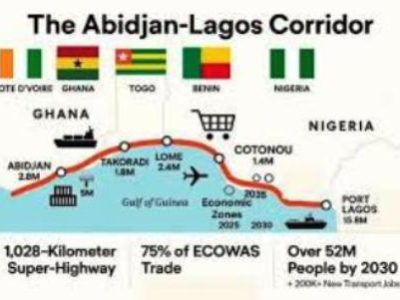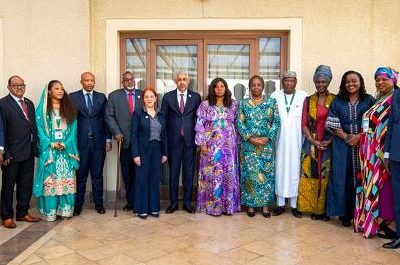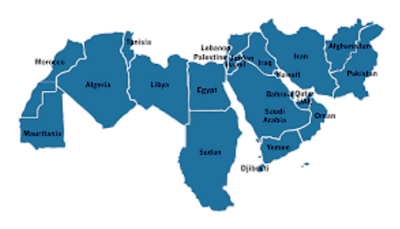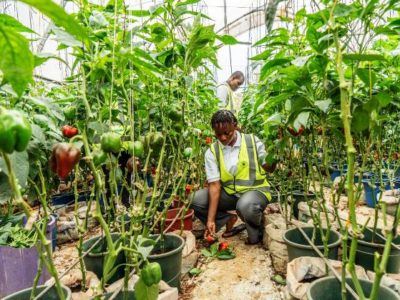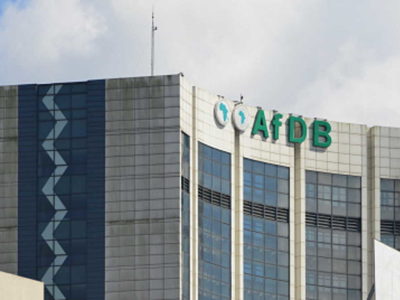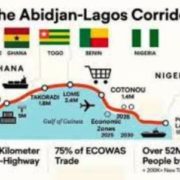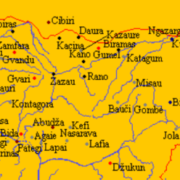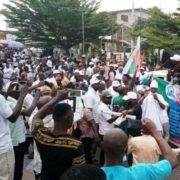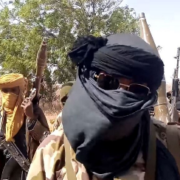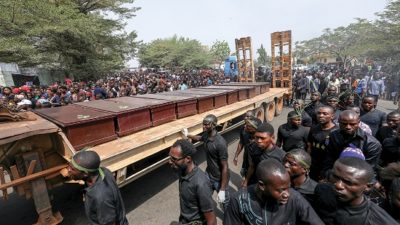By Zekeri Momoh

Woman voting in South Africa
Professor Peter Lewis, an American Scholar ones said that all democracies are confronted with the important tasks of broadening personal freedoms; encouraging genuine political competition; promote the accountability of leaders; resolving conflicts; advancing a general rule of law; and building efficient and effective public institutions. Therefore, elections are vital factor in addressing these challenges, by creating the regular platform for competitive political process and providing the opportunities for citizens to assess and change their political leaders. All these make elections a cornerstone in any democracy as it provides the platform for open, fair and competitive elections which provides the litmus test for differentiating one democratic system from the other.
Evidence from the United Nations has shown that on a global scale that one in every five elections experiences some measure of violence and this makes security in the electoral process imperative for states especially in Africa to protect their citizens. Moreover, over 400 elections conducted in the developing countries across the globe, approximately twenty percent of the elections were flawed, indicating that electoral malpractices were on a high scale such that opposition political parties boycotted or refused to accept the outcome of the result.
Also, about sixty percent of the flawed elections were conducted in Africa. The causes of these electoral malpractices are attributed to administrative challenges and in some cases, blatant fraud, and violence were the factors that triggered it. This explains why the aspirations of Africans for stable democracy have been constantly frustrated by, among other things, poor administration and the conduct of elections.
“The inability of many countries in Sub-Saharan Africa to meet the demands and basic needs of their citizens … has led to critical questions about the nature, quality, efficiency and sustainability of democracy in those country.”
Besides, studies have shown that between 19 and 25 percent of elections in Africa are marred by electoral violence. After a critical review of elections conducted in Sub-Saharan Africa, 33 of the elections were blatantly rejected by the major opposition parties rejected on the ground of electoral fraud. These were: Benin (1996 and 2001); Cameroon (1992, 1997, and 2004); Ethiopia (1995, 2000, 2005); Ghana (1992); Guinea (1993, 1998, 2003); Kenya (1992 and 1997); Madagascar (1996 and 2001); Malawi (1999 and 2004); Mali (1997 and 2002); Mauritania (1992, 1997, 2003); Mozambique, (1994, 1999, and 2004); Seychelles (2001); Togo (1993,1998, 2003, 2005); and Zambia (1996 and 2001).
In addition, out of these 33 cases, in 25 instances the losers challenged the results in court. These are: Benin (1996 and 2001); Cameroon (1992, 2004); Cape Verde(2001); Ethiopia (2005); Guinea (1993); Kenya (1992, 1997); Madagascar (2001); Malawi (1999, 2004); Mali (1997, 2002); Mozambique (1999, 2004); Namibia (1994); South Africa (2004); Seychelles (2001); Togo (1993, 1998, 2003, 2005); and Zambia (1996, 2001). Only in rare instances (Mali 1977, Benin 1996, Madagascar 2001) opposition parties’ legal appeals won favorable court rulings.
“Many countries in Africa that implemented multiparty system democracy institutions, such as legislature, judiciary and other institutions have not provided the needed check on the excesses of the executive arm of government, thereby giving the impression that the legislature and judiciary is in coma.”
However, only two cases of Madagascar 2001 and in Kenya 2017 the election result was wholly overturned by the highest court of the land. Also, 25 cases of these elections conducted in Africa are characterized by various degrees of election related violence. These were in: Cameroon (1992, 1997); Ethiopia (2005); Ghana (1992); Guinea (1993, 1998); Kenya (1992, 1997); Madagascar (1996, 2001); Malawi (1999, 2004); Mali (1997, 2002); Mauritania (1992, 1997, and 2003); Mozambique (1999); Togo (1993, 1998, 2003, and 2005); Zambia (1996, 2001) and Nigeria (2003, 2007, 2011).
Despite, most West African countries have ratify the International Covenant on Civil and Political Rights (ICCPR) in 1993, and the Economic Community of West African States’ (ECOWAS) Protocol on Democracy and Good Governance, adopted in 2001. Most elections conducted since 2001 have fallen below international standard as critical sections of these international breached include Article 25 of the ICCPR, and Articles 3, 5, 6, 7 of the ECOWAS Protocol on Democracy and Good Governance, relating to secrecy of the vote, universal franchise, independence and neutrality of the election administration, transparency and the disposal of petitions.

Voting and elections in Africa have brought little or no dividends.
From the above elections conducted in Africa, we can arguably say that the elections will not guarantee the sustenance of democracy in those countries, because most of the elections conducted in Africa since 1960’s to a large extent have not provided the desired competitiveness and equal participation for the citizens or even provided equal playing field for the contestants. Elections if properly conducted are expected to promote an environment for capital mobility and higher productivity, especially in post-authoritarian and post-conflict societies in need of reconstruction and development. However, evidence from West African countries has shown that elections in the sub-region have failed to meet the developmental needs of the citizens.
Thus, there is growing recognition among scholars and practitioners that holding of elections in Africa alone does not offer a cure for the deeper political, economic and social problems bedeviling states in African continent today. Also, the inability of many countries in Sub-Saharan Africa to meet the demands and basic needs of their citizens in what is called in democracy literature as “Dividend of democracy” including the promotion of economic development, has led to critical questions about the nature, quality, efficiency and sustainability of democracy in those country.
Today, many countries in Africa that implemented multiparty system democracy institutions, such as legislature, judiciary and other institutions have not provided the needed check on the excesses of the executive arm of government, thereby giving the impression that the legislature and judiciary is in coma. Contemporary experiences from elections conducted in most African countries have also shown that democratisation in Africa has not led to the institutionalisation of formal rules, and uncertainty of rules witnessed before and during most elections. Also, institutional reforms in most countries in Sub-Saharan Africa have frequently failed to produce influential ‘watchdogs’ and counter-forces against state malpractice and corruption, as assumed in most democratic theory.
The history of elections in Africa have shown that the masses cannot see election as an avenue in changing the material conditions rather during most elections moral values of their country are always corrupted by the continuous disrespect for existing democratic rules and regulations by politicians who seek to capture political power at all costs. During most elections politicians sees elections as warfare, in which the “all is fair that brings victory, pervasive indiscipline is inescapable and clarion call for ethical revolution can only fall on deaf ears”
Furthermore, election is one of the fundamental principles upon which democracy base though not a sufficient condition for democracy, but remains the key indicator for democracy in any society. In the words of former American President Jimmy Carter, “democracy is more than just elections, but it certainly can be no less than elections”. Therefore elections are imperative for democratic growth. Therefore, what elections does is that it provide essential validation for democracy by increasing the confidence of individual citizens in their ability to participate in the decision making process
On the whole, if African states must advance their democracies; they must see democracy beyond the conduct of elections or periodic elections for the international community to see. They must ensure that they build their democratic institutions rather than building individuals who are stronger than the state institutions. Besides, the respect for the rule of law, independent of the judiciary, freedom of the press and CSOs engagement, developing an even playing field for all contestants and checks and balances between the three arms of government is important.

Zekeri Momoh, is of the Global Network for Advancement of Integrity Transparency and Accountability (GNAITA) Abuja-Nigeria; and also a member of the Baobab Think Tank. Email: [email protected].

